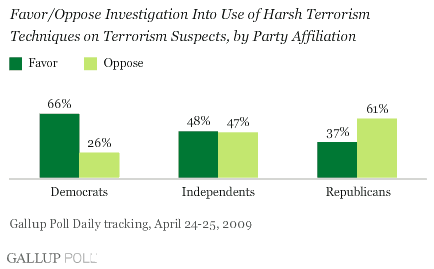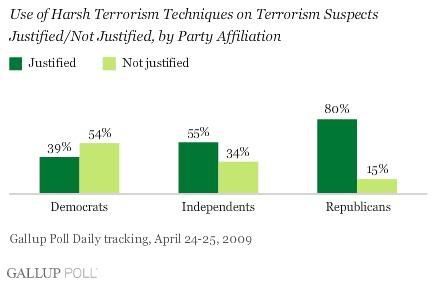It's very, very frothy. So that you won't feel neglected, I'll address some of what you said.
No. The moral of the story is that if you are going to break the law, it's better to publicly acknowledge what you're doing. If you have spent even a single day in a courtroom you will understand this principle. Coming clean is better than attempting to hide a crime.
I dare you to say that sentence three times fast. Bonus points if you can diagram it.
Once again, I don't see why you are confused. Taking ownership of an act is universally regarded as more honorable than hiding and/or lying about it. For someone who makes a lot of grumpy old man proclamations about how the current generation is honorless and corrupt and we're all going to hell any minute, I really don't see why you're having a cognitive disconnect about this concept.
Re-phrasing the same idea three times doesn't make it any more true. Let's attack this from another angle:
I have kids. You're of age, you may as well. Let's say your kid is going to kill a dog. That's a given; you can't prevent it from happening. Would you rather your kid confessed to the deed and apologized, saying that it was necessary, or would you rather he hid the corpse and lied when you asked him about it? Does one course of action seem less repugnant than the other?
Taking responsibility for your actions is simple and fundamental to personal honor. Why are you arguing that it's irrelevant?
What exactly congresscritters were told has not been made public, yet you proceed on the assumption that they knew enough to be implicated in the torture-fest. You may be right, you may be wrong; I'd like to see more evidence before jumping to conclusions. On the one hand, I don't doubt that congresscritters would lie like a rug if they thought they could get away with it; on the other hand, the Bush administration was justly famous for freezing out the other branches of government whenever possible, even when they held a Republican majority in congress. This could break either way. At the end of the day, I'd like to know more.
Operation Iraqi Freedom II was clearly going to be a long, painful affair within two months of the invasion in 2003. The waterboardings that we know about also happened in 2003. So you're saying that because the info about our SERE imitation program wasn't made available in the few weeks after we invaded Iraq, this stinks of political bet-hedging? That doesn't make much sense, Spino.
One might also call it "airing one's dirty business in a time of crisis and asking that the co-equal branches of government sign on or vote it down." Once again, you seem to be irritated at the notion of taking responsibility for an illegal and unpopular move. I look forward to hearing your clarification of this position.
Interestingly, I did some reading on the whole Abe v. habeas corpus thing, and couldn't find any consensus on how many times he did it. Different numbers and different dates from every source I looked at.
You are irritated that the author took the example of the first agreed-upon time Abe shredded the constitution, and again, I don't see why. It's perfectly legitimate to take an example of something done right and hold it up as an exemplar. The fact that it was later done wrongly does nothing to invalidate the argument. You seem to be arguing that unless Lincoln's entire career matches the example given, the argument is specious.
Spino, this is the sort of over-heated rhetoric that makes me want to walk away whistling. You don't know the author, and I seriously doubt that you've followed his writing. I know I haven't. You don't know what's a "sacred cow" to him any better than I do. He chose a specific example of an illegal decision made in time of crisis that he thought was well-handled. But you're off and running, accusing him of worshiping Lincoln and being blinded by his naive adulation. But the article doesn't show any such messianic leanings; you're bringing that to the party, not the article I quoted. And you seem to be projecting this worshipful blindness on the author in order to discredit the points he's making, and therein lies the irony.
You're the one making frothy, unsubstantiated accusations. And you're the one pretending that responsibility and honor are meaningless concepts. All to make a rhetorical point.
Well, I can't jump on you too hard for it; I've committed many such sins in my time. I try not to, but sometimes rhetoric gets hold of me, rather than me having hold of it.
Anyway, response made. I look forward to seeing the ball come back over the net.

















 She's been in full CYA mode ever since she became Speaker. This just highlights the need for an independent prosecutor, a congressional investigation would be a whitewash.
She's been in full CYA mode ever since she became Speaker. This just highlights the need for an independent prosecutor, a congressional investigation would be a whitewash.

Bookmarks